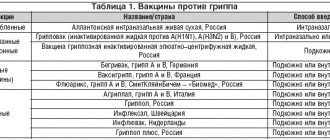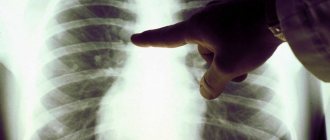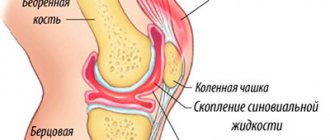Autumn and winter are the period of colds and the spread of viral infections. It is during this time that the incidence rate increases significantly. For some people, distinguishing the flu from a cold can be difficult. Although these two diseases are similar in symptoms, course and even cause, treatment for the flu and colds can be very different. And incorrectly prescribed medications can only worsen the situation.
How to distinguish the flu from a cold - we'll figure it out in this article.
How is the flu different from a cold?
- Onset of the disease . Flu symptoms develop rapidly. And it progresses quickly in the body.
The source of influenza is sick people during the incubation period or the height of the disease. The disease is transmitted by airborne droplets when sneezing, coughing, shaking hands, and also through dirty food (it has not been thermally processed enough). The infection begins to manifest itself in the period from 4 hours to 3 days. In general, the disease goes away in 5-7 days.
A cold is a disease of the body associated with hypothermia. A cold develops gradually, progressively, and painful symptoms appear within a day or two. It is usually easy to treat. But in advanced forms it can develop into other more severe diseases.
- Temperature . With the flu, there is a high body temperature, which can reach 39-40 degrees. With a cold, the temperature usually remains at the standard level.
- Weakness . People with a cold often ignore symptoms such as cough and runny nose, thinking that it will “go away on its own” with time. A cold can be carried on your feet, although it is undesirable.
But during the flu, the patient immediately realizes that he is sick; often he cannot even have the strength to get out of bed. Aches all over the body, severe headache, fever - these symptoms cannot be confused with anything else.
- Cough and runny nose . During the flu, these symptoms do not appear immediately (only after 5 days), and may not appear at all. With a cold, a debilitating cough, sore throat when swallowing and a runny nose are noted.
- Red eyes, itching and watery eyes . The picture of the flu is complemented by red eyes, severe weakness, fever, and bursting blood vessels in the nose. And in severe forms, even convulsions, vomiting, rapid heartbeat, and lack of air are possible.
When you have a cold, your eyes do not turn red or water, and if this happens, it is more likely to indicate a bacterial infection.
Kagocel
This antiviral drug does not have a direct effect against viruses, but it helps the body produce interferons, which stimulate the immune response. "Kagocel" is prescribed for influenza and other acute respiratory viral infections from the age of three. The drug is presented in tablets, and the course of treatment lasts 4 days (the treatment regimen is prescribed by the doctor, taking into account the patient’s age).
Possible side effects include allergic reactions. "Kagocel" is contraindicated for children under 3 years of age, pregnant and lactating women.
Kagocel
Nearmedic Pharma LLC, Russia
The greatest effectiveness in treatment with Kagocel® is achieved when it is prescribed no later than the 4th day from the onset of acute infection.
For preventive purposes, the drug can be used at any time, including immediately after contact with the infectious agent. from 199
5.0 1 review
1473
- Like
- Write a review
Why is it necessary to distinguish between these diseases?
The group of people with weakened immune systems includes pensioners and children, people with chronic diseases. This means that their immune system is most susceptible to attack by pathogens. An incorrect diagnosis can lead to deterioration in the functioning of the entire body and incorrect treatment.
Due to influenza, the natural functions of the immune system are weakened, against the background of this, other infections can join and develop. These are mainly respiratory tract infections: the lungs are affected by streptococcal or staphylococcal flora. This contributes to the development of pneumonia, pulmonary hemorrhage, and edema.
Influenza in adults can be complicated by the development of sinusitis, sinusitis, pericarditis and acute cardiovascular failure. Influenza in children is complicated by otitis media, focal pneumonia, and bronchitis.
Umifenovir
Trade names: “Arbidol”, “Arpeflu”, “Orvitol”, “Afludol”. Arbidol has a controversial reputation, because once it appeared, the evidence base for this antiviral drug was insignificant. But recently, the number of studies on the effectiveness of Arbidol has increased. There is a lot of evidence that umifenovir fights influenza viruses, enteroviruses, and seasonal colds. Studies have shown that umifenovir reduces the duration of the disease by 1.7-2.65 days, while reducing the risk of complications from ARVI and influenza by 4 times.
"Arbidol" is indicated for children from 2 years of age (the drug is sold in powder for preparing a suspension). There is also Arbidol in capsules and tablets.
Contraindications include: pregnancy and intolerance to the drug. Known side effects: allergic reactions.
Umifenovir
OZON, Russia
Umifenovir is used for the prevention and treatment of influenza A and B and other acute respiratory viral infections in adults and children from 3 years of age (for the dosage form of a capsule of 50 mg), from 6 years of age (for the dosage form of a capsule of 100 mg).
As a complex therapy for acute intestinal infections of rotavirus etiology in children over 3 years of age (for the dosage form of a capsule 50 mg), from 6 years of age (for the dosage form of a capsule 100 mg). Complex therapy of recurrent herpes infection. Prevention of postoperative infectious complications. from 102
1.5 2 reviews
467
- Like
- Write a review
Diagnosis of flu and colds
If you suspect a disease, you should seek help from a doctor. For adults - a therapist, for children - a pediatrician. The consultation takes place in several stages.
- Initial examination. The doctor will ask you questions about your health, review your medical history, and refer you for tests and diagnostics. After a private consultation, the therapist prescribes an ultrasound of internal organs and laboratory tests to detect viruses and infections.
- Establishing diagnosis. After collecting anamnesis, the specialist will identify the disease based on the results obtained. He will tell you about the causes of your condition, prescribe treatment with various methods and drugs, or refer you for hospitalization.
- If necessary, the therapist will refer you to a specialist for further examination.
As for the examination of the child by the pediatrician, parents must be present. This helps the doctor quickly find a common language with the patient. Initially, the pediatrician listens to the lungs, measures the child’s body temperature, and examines the throat for inflammation.
The specialist listens to parents' complaints about the child's health. After this, it is necessary to undergo an examination to diagnose the disease. The pediatrician will order a blood/urine test, as well as additional tests if necessary (scraping, x-ray, bronchoscopy). At a follow-up consultation, the specialist will make a diagnosis, prescribe medication, or refer you to a specialized specialist.
Interferon preparations for the prevention of coronavirus
Another group of drugs that can be offered to prevent respiratory infections, including COVID-19, are interferons. The activity of parenteral interferon alpha-2a has been demonstrated against MERS-CoV, the coronavirus that causes severe Middle East respiratory syndrome, an outbreak of which was reported in 2012 [5]. The effectiveness of interferon has also been studied during SARS infection: studies published in 2009 confirmed that interferon alpha promotes the production of its own interferon, the production of which is blocked by coronavirus [6].
The domestic temporary recommendations of the Russian Ministry of Health on COVID-19 describe the intranasal administration of a solution of recombinant interferon alpha for the prevention of the disease in both children and adults, including pregnant women, as well as the treatment of mild forms in patients under 60 years of age without concomitant chronic diseases [1 ].
The mechanism of the antiviral and immunomodulatory action of interferons is based on the ability to prevent viral infection of cells and suppress viral replication. In addition, interferon alpha enhances the phagocytic activity of macrophages and increases the secretion of antibodies.
What can you offer?
As drugs to enhance the immune response, including during the COVID-19 pandemic, nasal drops or a nasal metered spray of interferon alfa-2b can be recommended.
What should you tell the buyer?
Preparations of human recombinant interferon alpha-2b have antiviral and immunomodulatory properties and are used for the prevention and treatment of acute respiratory viral infections. They are usually well tolerated and are approved for adults, including pregnant and lactating women, and children, including young children.
Therefore, during a pandemic, it is advisable to prevent COVID-19 disease with interferon alpha-2b preparations. If necessary (for example, if the pandemic drags on), the preventive course can be repeated.
Bibliography:
- Prevention, diagnosis and treatment of new coronavirus infection [COVID-19]. Temporary guidelines. Version 5
- Zhang J. et al. Therapeutic and triage strategies for 2019 novel coronavirus disease in fever clinics //The Lancet Respiratory Medicine. 2020
- Khamitov RA, Loginova S, Shchukina VN, Borisevich SV, Maksimov VA, Shuster AM. Antiviral activity of arbidol and its derivatives against the pathogen of severe acute respiratory syndrome in the cell cultures. Vopr Virusol 2008
- Zhou P. et al. A pneumonia outbreak associated with a new coronavirus of probable bat origin //Nature. 2020
- Omrani AS et al. Ribavirin and interferon alfa-2a for severe Middle East respiratory syndrome coronavirus infection: a retrospective cohort study //The Lancet Infectious Diseases. 2014
- Kuri T. et al. Interferon priming enables cells to partially overturn the SARS coronavirus-induced block in innate immune activation //The Journal of general virology. 2009; 90 : 2686
- Jin YH et al. A rapid advice guideline for the diagnosis and treatment of 2021 novel coronavirus (2019-nCoV) infected pneumonia (standard version) //Military Medical Research. 2020
We collect all materials about COVID-19 that are useful to pharmaceutical workers in a special section of the website.
The most important things on the topic: hand antiseptic, hand hygiene, disinfection in the pharmacy, rules for using masks, myths and facts about coronavirus, pharmaceutical consultation on antipyretic and hypotensive drugs during a pandemic.
We answer questions live on VKontakte: https://vk.com/pharmznanie
You can discuss the latest news with all your Russian colleagues in chats:
- Telegram: https://tglink.ru/pharmorden
- VKontakte: https://vk.me/join/AJQ1d_D2XxaDy9IdzL0e6EqH
Interested in the article? You can find out even more in the News section
How are colds and flu treated?
Hospital mode
The first thing the doctor will prescribe for such a disease is bed rest. Carrying an illness on your feet is extremely dangerous for both you and those around you. The influenza virus is highly contagious. Everyone you come into contact with will also get sick. You, in turn, risk getting a bacterial complication of the flu.
It is also necessary to adhere to a certain diet: try to drink as much warm drink as possible (herbal teas, milk with honey, berry fruit drinks, water), do not eat heavy fried foods. If you or your child suffering from a disease does not want to eat, there is no need to force it. Decreased appetite is a common symptom of the disease.
Drug therapy
First of all, antiviral drugs are prescribed for influenza and colds , which inhibit the vital activity and spread of the virus inside the human body. Such medications are prescribed for severe or moderate severity of the disease. The drug is most effective in the first days of the disease.
Antipyretics are used only at very high temperatures to help the body cope with the fever and prevent complications from developing. These drugs also have an anti-inflammatory effect.
Antibiotics for colds are taken only after a doctor's prescription. When, against the background of the development of influenza, an acute bacterial infection appears that the body cannot cope with on its own. Important: if you start taking antibiotics, the course cannot be interrupted.
Antihistamines relieve the unpleasant consequences of the disease, such as redness, itching, lacrimation, swelling of the nasopharynx and nasal discharge.
Immunostimulants help strengthen the body's defenses and help the immune system independently repel attacks from viruses and bacteria.
Drops for a runny nose relieve swelling of the mucous membrane, allow the nose to breathe normally and prevent the occurrence of microbial complications. However, the drug should not be taken for more than 5 days, because there is a risk of chronic swelling of the mucous membrane.
It is important to know!
Expectorants and mucolytics should not be taken simultaneously with antitussives: this can cause an excess of phlegm in the bronchi. For a dry cough or cough with little sputum, sputum thinners are prescribed; for a wet cough, expectorants are prescribed. Antitussive drugs are prescribed in exceptional cases when a person has a persistent cough.
Treatment of acute respiratory infections in adults should be carried out under the supervision of a doctor, especially if there are the following symptoms:
- high temperature, which has no or almost no effect from paracetamol;
- high temperature persists on the fourth day of illness;
- severe pain in the chest or head;
- purulent discharge;
- return of temperature a day after it disappears or on the seventh day of illness;
- deterioration of the condition after a short period of improvement;
- pale skin, severe lethargy, shortness of breath;
- intense sore throat in the absence of a runny nose or cough;
- severe dry cough that cannot be softened, attacks when trying to take a deep breath;
- rash.
It is important to know!
Despite numerous advice and the strong belief that a glass of vodka at night is the best medicine, alcoholic drinks do not help treat acute respiratory infections and acute respiratory viral infections. Alcohol lowers an already weakened immune system, blocks the ability of the kidneys to remove toxins, constricts blood vessels, causing headaches - in a word, it prevents the body from fighting infection. And drinking alcohol at high temperatures increases dehydration and leads to an exacerbation of the disease.
Prevention of flu and colds
The most reliable way to prevent influenza is vaccination. The flu shot is effective, but does not provide long-term immune protection, so vaccination should be done annually. Regular flu vaccination increases the production of antibodies to the virus.
The vaccine has no side effects, and the improved composition protects against mutated strains of the virus. Timely vaccination prevents infection. Even if infected, the disease will be mild.
After getting a flu shot, your temperature may rise to 37.5℃, you may experience chills, sweating, a general feeling of weakness and poor appetite. Redness, slight swelling, itching and pain may be observed at the injection site. This is an indication that your body is developing immunity to the flu. After vaccination, it is strictly forbidden to visit a bathhouse/sauna, swim in open water, engage in tiring physical activity, or drink alcohol.
Contraindications to the flu vaccine
- at least 6 months have not passed since the last vaccination;
- bronchial asthma;
- allergic reactions;
- iron deficiency;
- diseases of the respiratory system in acute or chronic form;
- allergic reaction to chicken protein;
- heart failure;
- endocrine diseases;
- blood pathologies;
- first trimester of pregnancy;
- severe renal failure;
- period of exacerbation of chronic diseases.
To prevent flu and colds, follow a few simple rules:
- Strengthen your immune system. Exercise more often or give your body light exercise. Take a walk in the fresh air, this will saturate your lungs with oxygen.
- Avoid hypothermia. This occurs due to a sharp temperature change and the action of the air conditioner.
- Use antibacterial agents, especially during cold season.
- Eat a balanced diet. This will provide the body with the necessary microelements.
The most popular and effective antiviral drugs.
May 17, 2021
8832
0
1
Content
- How to distinguish ARVI from influenza?
- Umifenovir
- Viferon
- Kagocel
- The best flu medications
- Zanamivir
- Oseltamivir
Antiviral drugs are a large group of drugs, which includes drugs for the treatment of HIV and hepatitis, and those prescribed for influenza and other acute respiratory viral infections, and even homeopathic drugs, which are so widely advertised, but in fact are “dummies”.
Our rating of antiviral drugs is drugs aimed at treating acute respiratory viral infections, including influenza. Some drugs on our list are sold exclusively by prescription and should be taken exclusively under the supervision of a physician.
Where to get diagnosed and treated for flu and colds in Krasnoyarsk?
This can be done at the Medunion private medical clinic.
Is a child or an elderly person sick? Then do not wait to see a doctor, but simply call a specialist at home. It's not only fast, but also very convenient! The specialist will examine the patient in a familiar environment, prescribe tests, and prescribe the necessary treatment. And the nurse will take samples or vaccinate you.
Sign up for a medical appointment and take care of the health of your loved ones. You can do this in any way convenient for you - online or by phone on the website. The cost of an initial consultation with a doctor starts from 1100 rubles.
Myths about colds
Although acute respiratory infection has been known to medicine for a long time, there are still myths about its treatment methods and precautions. We have collected the most popular of them:
| Myth | In fact |
| If you have a cold, you should keep the windows closed and not go outside. | Fresh air is the enemy of the virus. Regular ventilation keeps the house free from infections. |
| The patient needs to be warmed. | No one has canceled the body’s need for normal thermoregulation. Overheating is no less dangerous than hypothermia. |
| A person with a cold should not wash. | In cold water it’s really not worth it, because hypothermia weakens the immune system. It’s possible and even necessary in a warm place. The patient sweats, and with then toxins come out. They need to be washed off. |
| Ice cream is a surefire way to catch a cold. | The cause of the disease is a virus, not a cold. Whether a person will eat so much ice cream to weaken their immune system is a big question. When you have a sore throat, this dessert is actually useful. It relieves swelling, inhibits the inflammatory process and reduces discomfort. |








